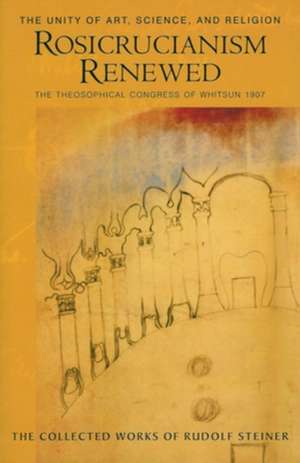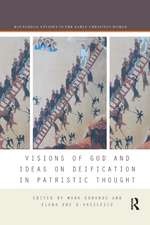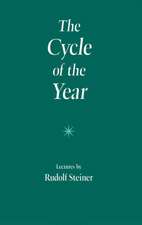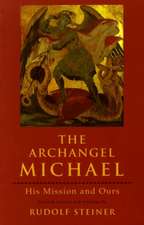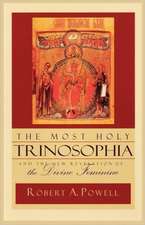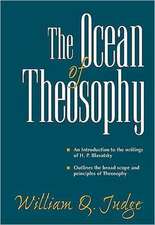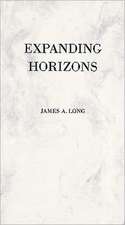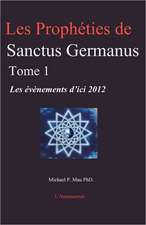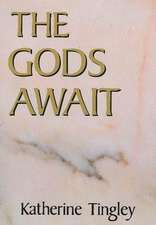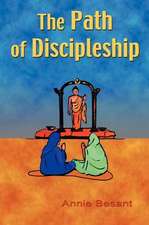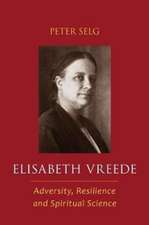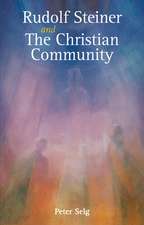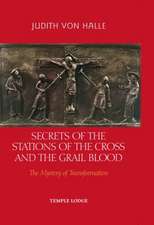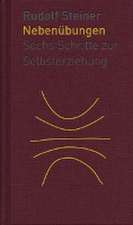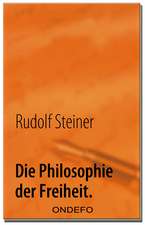Rosicrucianism Renewed: Collected Works of Rudolf Steiner, cartea 284
Autor Rudolf Steiner Traducere de Marsha Posten Limba Engleză Paperback – 29 apr 2007
- On the Munich Congress
- Rosicrucian Initiation
- Planetary and Human Evolution
- Remarks on the Seals of Columns
- Report on the Congress
- Various reports and commentaries
- The Apocalyptic Seals
- Symbols and Sings and the Working of Chaos
- Speech at the Laying of the Malsch Foundation Stone
- In what Sense are we Theosophists and in what Sense Rosicrucians?
- Sixty-four pages of color reproductions of the meeting program, columns and seals, Steiner's sketches of the new Goetheanum, and more.
Din seria Collected Works of Rudolf Steiner
-
 Preț: 136.35 lei
Preț: 136.35 lei -
 Preț: 215.68 lei
Preț: 215.68 lei -
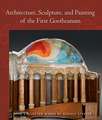 Preț: 277.41 lei
Preț: 277.41 lei -
 Preț: 154.46 lei
Preț: 154.46 lei -
 Preț: 151.75 lei
Preț: 151.75 lei -
 Preț: 260.45 lei
Preț: 260.45 lei -
 Preț: 108.47 lei
Preț: 108.47 lei -
 Preț: 136.86 lei
Preț: 136.86 lei -
 Preț: 115.84 lei
Preț: 115.84 lei -
 Preț: 136.49 lei
Preț: 136.49 lei -
 Preț: 135.09 lei
Preț: 135.09 lei -
 Preț: 108.26 lei
Preț: 108.26 lei -
 Preț: 110.47 lei
Preț: 110.47 lei -
 Preț: 101.01 lei
Preț: 101.01 lei -
 Preț: 143.00 lei
Preț: 143.00 lei -
 Preț: 258.66 lei
Preț: 258.66 lei -
 Preț: 101.17 lei
Preț: 101.17 lei -
 Preț: 151.68 lei
Preț: 151.68 lei -
 Preț: 121.95 lei
Preț: 121.95 lei -
 Preț: 115.58 lei
Preț: 115.58 lei -
 Preț: 257.55 lei
Preț: 257.55 lei -
 Preț: 152.25 lei
Preț: 152.25 lei -
 Preț: 152.00 lei
Preț: 152.00 lei -
 Preț: 136.86 lei
Preț: 136.86 lei -
 Preț: 224.10 lei
Preț: 224.10 lei -
 Preț: 225.17 lei
Preț: 225.17 lei -
 Preț: 259.91 lei
Preț: 259.91 lei -
 Preț: 217.78 lei
Preț: 217.78 lei -
 Preț: 184.77 lei
Preț: 184.77 lei -
 Preț: 194.89 lei
Preț: 194.89 lei -
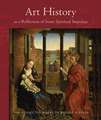 Preț: 280.29 lei
Preț: 280.29 lei -
 Preț: 135.88 lei
Preț: 135.88 lei -
 Preț: 153.89 lei
Preț: 153.89 lei -
 Preț: 152.86 lei
Preț: 152.86 lei -
 Preț: 135.32 lei
Preț: 135.32 lei -
 Preț: 145.05 lei
Preț: 145.05 lei -
 Preț: 151.47 lei
Preț: 151.47 lei -
 Preț: 258.37 lei
Preț: 258.37 lei -
 Preț: 152.25 lei
Preț: 152.25 lei -
 Preț: 115.98 lei
Preț: 115.98 lei -
 Preț: 100.76 lei
Preț: 100.76 lei -
 Preț: 216.88 lei
Preț: 216.88 lei -
 Preț: 226.35 lei
Preț: 226.35 lei -
 Preț: 151.47 lei
Preț: 151.47 lei -
 Preț: 154.81 lei
Preț: 154.81 lei -
 Preț: 217.05 lei
Preț: 217.05 lei - 5%
 Preț: 145.87 lei
Preț: 145.87 lei -
 Preț: 151.75 lei
Preț: 151.75 lei
Preț: 258.76 lei
Nou
Puncte Express: 388
Preț estimativ în valută:
49.51€ • 51.70$ • 40.98£
49.51€ • 51.70$ • 40.98£
Carte disponibilă
Livrare economică 15-29 martie
Livrare express 01-07 martie pentru 46.52 lei
Preluare comenzi: 021 569.72.76
Specificații
ISBN-13: 9780880106115
ISBN-10: 0880106115
Pagini: 325
Ilustrații: illustrations
Dimensiuni: 169 x 234 x 31 mm
Greutate: 0.71 kg
Editura: Steiner Books
Seriile The Collected Works of Rudolf Steiner, Collected Works of Rudolf Steiner
Locul publicării:United States
ISBN-10: 0880106115
Pagini: 325
Ilustrații: illustrations
Dimensiuni: 169 x 234 x 31 mm
Greutate: 0.71 kg
Editura: Steiner Books
Seriile The Collected Works of Rudolf Steiner, Collected Works of Rudolf Steiner
Locul publicării:United States
Notă biografică
Rudolf Steiner (1861-1925) was born in the small village of Kraljevec, Austro-Hungarian Empire (now in Croatia), where he grew up. As a young man, he lived in Weimar and Berlin, where he became a well-published scientific, literary, and philosophical scholar, known especially for his work with Goethe's scientific writings. At the beginning of the twentieth century, he began to develop his early philosophical principles into an approach to systematic research into psychological and spiritual phenomena. Formally beginning his spiritual teaching career under the auspices of the Theosophical Society, Steiner came to use the term Anthroposophy (and spiritual science) for his philosophy, spiritual research, and findings. The influence of Steiner's multifaceted genius has led to innovative and holistic approaches in medicine, various therapies, philosophy, religious renewal, Waldorf education, education for special needs, threefold economics, biodynamic agriculture, Goethean science, architecture, and the arts of drama, speech, and eurythmy. In 1924, Rudolf Steiner founded the General Anthroposophical Society, which today has branches throughout the world. He died in Dornach, Switzerland.
